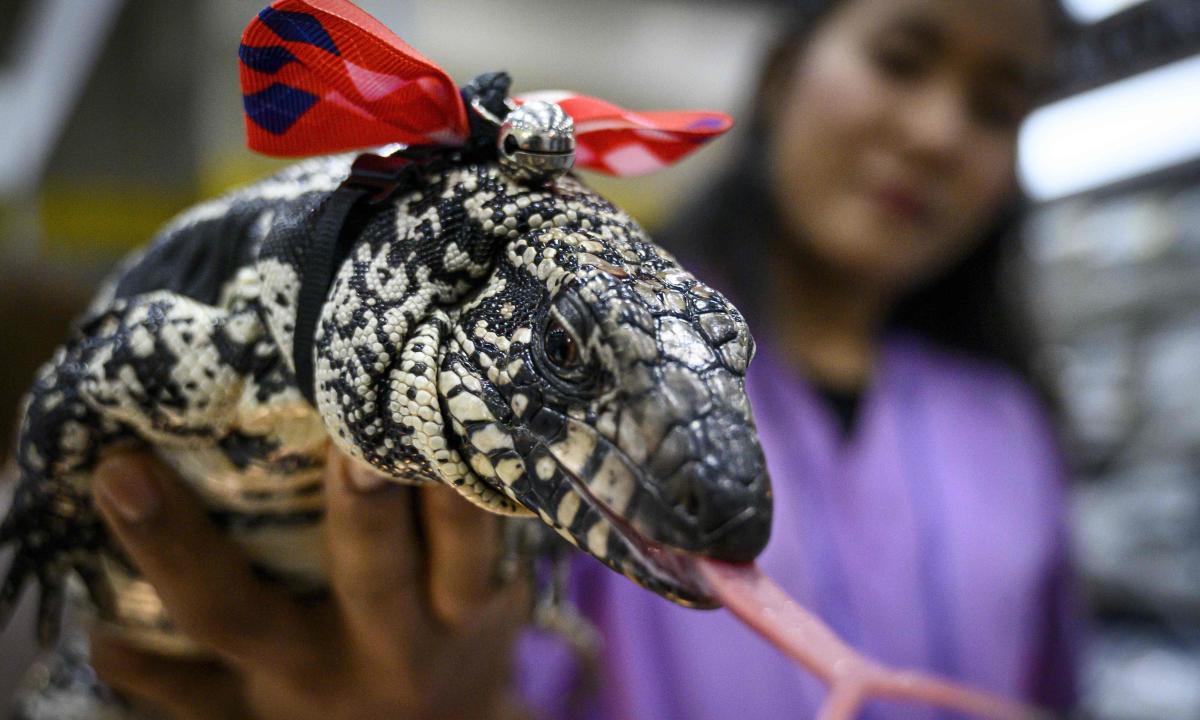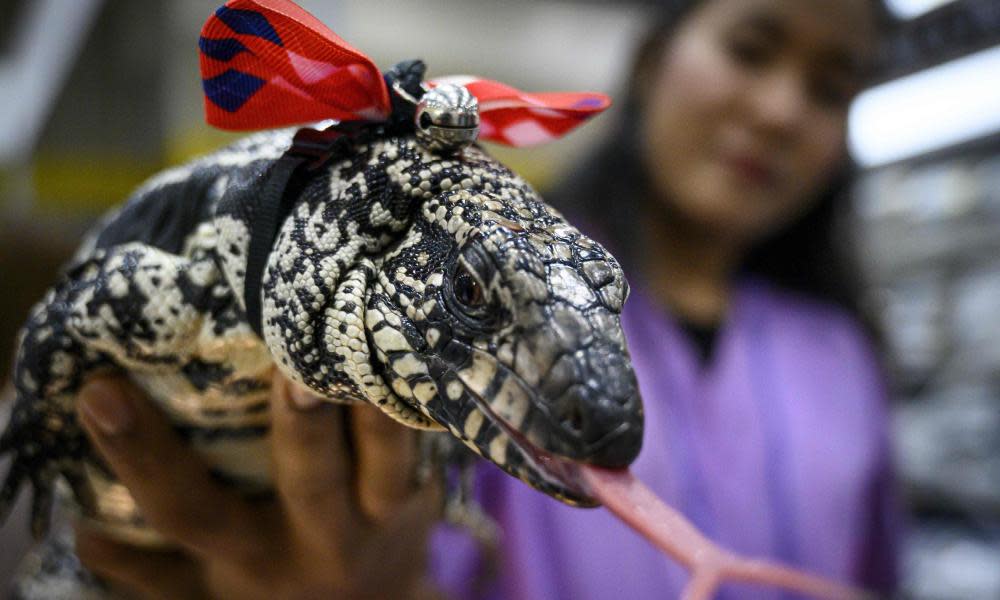#Georgia homeowner finds 3ft tegu lizard hiding under porch


An oblivious Georgia homeowner was unaware a huge 3ft tegu lizard had taken up residence under her porch until eagle-eyed children in the neighborhood spotted it and told her, state wildlife officials said.
The reptile was a non-native Argentine black and white tegu, the largest of its species that can grow up to 5ft and pose a threat to wildlife and people, the officials reported.
They are using the episode to remind Georgia residents of state regulations that came into effect last year listing creatures including the Argentine tegu species, Nile monitors, African helmeted turtles, Chinese softshell turtles, and Indian rock and Burmese pythons as wild.
A grace period extends until 4 December for owners intending to keep any of the listed animals as pets to tag and register them, or dispose of them to somebody licensed to keep them for solely scientific, educational or public exhibition purposes.
Biologist Brett Albanese, assistant chief of the Georgia department of natural resources (DNR), said the woman was surprised to learn last month from the neighborhood children that a giant reptile was living under her house in Athens.
“This is definitely an example of why we need to regulate these species. They can be difficult to keep and as they grow their owners may not want to care for them or be able to afford to,” he said.
Dr Albanese was unable to say if the tegu had escaped or was released into the wild purposely, which would be illegal. But he said the potential impact to the state’s ecosystem could not be overstated.
“I can’t emphasize enough how important it is to never release non-native species in Georgia. This helps protect native wildlife and prevent the need for additional regulations,” he said.
South American species of tegus are not usually known for aggression, but can become agitated when cornered, searching for food or during mating season. They have a sharp bite and their long tails can whip quickly and cause injury.
Albanese’s department has made efforts to eliminate tegus, but admits it needs the public’s help. According to state information, populations of tegus exist in at least two counties, Toombs and Tattnall, surviving on the eggs of native quail, turkeys, alligators and gopher tortoises.
They also eat chicken eggs, fruit, vegetables, plants, pet food, carrion and small live animals, including gopher tortoises, a protected species.
“As a non-native species they can be killed on private property with the landowner’s permission and using legal methods in accordance with local ordinances, animal cruelty laws and safety precautions,” the department says.
“Tegus could spread exotic parasites to native wildlife and cause bacterial contamination of crops. Invasives compete with native wildlife for food and other resources. They can cause habitat damage and transmit diseases and parasites [and] prey on native wildlife.”
Other southern states experiencing issues with invasive species have also previously enacted similar tagging and licensing laws. In Florida, known for its diverse array of flora and fauna, wildlife managers declared an official “tag your reptile day” in 2021 to counter the growing threat.
If you liked the article, do not forget to share it with your friends. Follow us on Google News too, click on the star and choose us from your favorites.
For forums sites go to Forum.BuradaBiliyorum.Com
If you want to read more News articles, you can visit our News category.




